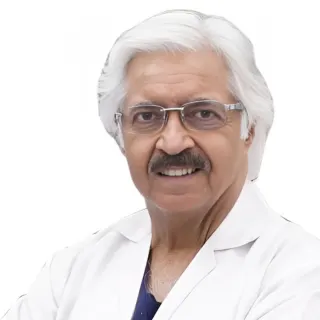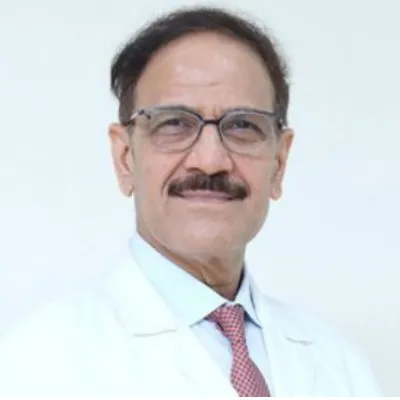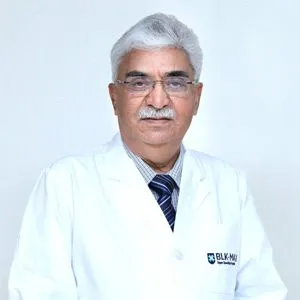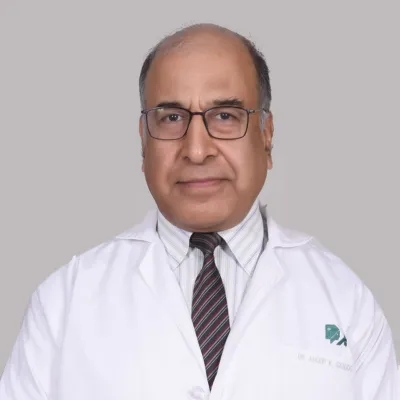Best Liver Transplant Surgeons in Artemis Hospital Gurgaon
 24 December,2025
Read More
24 December,2025
Read More
Starting From: INR 300,000 - INR 4,00,000
Congenital Heart Disease TreatmentsCongenital Heart Disease (CHD) treatment is affordable in India. The cost of Congenital Heart Disease TreatmentsCongenital Heart Disease (CHD) treatment in India lies between INR 300,000 - INR 4,00,000. The exact procedure price depends on multiple factors such as the surgeon's experience, type of hospital, severity of the condition, patient's general condition,�etc.
Congenital heart disease (CHD) refers to a range of structural abnormalities in the heart that are present at birth. These conditions can affect the heart's structure, function, or both. With advancements in medical science, there have been remarkable strides in the diagnosis and treatment of CHD. This article explores the diverse treatment modalities available for congenital heart disease, including surgical interventions, catheter-based procedures, and medical management, highlighting the personalized approach to care that has revolutionized the outlook for individuals with CHD.
Accurate diagnosis is the first crucial step in managing congenital heart disease. Modern diagnostic techniques, including fetal echocardiography, three-dimensional imaging, and genetic testing, allow for detailed assessment of the heart's structure and function in utero or shortly after birth. This early diagnosis enables timely intervention and tailored treatment plans.
Long-term management of congenital heart disease is crucial for ongoing health and well-being. This may involve regular follow-up appointments, imaging studies, and specialized care tailored to the specific type of CHD.
Individuals with congenital heart disease can often lead healthy, fulfilling lives. However, careful planning and specialized care are crucial during pregnancy to ensure the health and well-being of both the mother and baby.
Living with a congenital heart condition can impact an individual's emotional and psychological well-being. Access to support groups, counseling, and specialized care can play a vital role in enhancing overall quality of life.
Advancements in the treatment of congenital heart disease have transformed the outlook for individuals born with these complex conditions. From early diagnosis through advanced imaging techniques to a wide array of treatment modalities, personalized care has become the cornerstone of managing CHD. With a multidisciplinary approach involving cardiologists, cardiothoracic surgeons, interventionalists, and specialized nursing teams, individuals with congenital heart disease can lead healthy, fulfilling lives. The ongoing evolution of medical science promises even brighter prospects for the future of congenital heart disease treatments.

Chairman
Interventional Cardiologist
Fortis Escorts Heart Institute, New Delhi

Chairman
Interventional Cardiologist
BLK-Max Super Speciality Hospital, New Delhi

Director
Cardiologist, Interventional Cardiologist
Max Super Speciality Hospital, Saket, New Delhi

Chairman
Cardiac Electrophysiologist, Interventional Cardiologist
BLK-Max Super Speciality Hospital, New Delhi

Consultant
Interventional Cardiologist
Indraprastha Apollo Hospital, New Delhi

Senior Consultant
Cardiothoracic and Vascular Surgeon
Indraprastha Apollo Hospital, New Delhi
Doctor of Pharmacy
Dr. Deepanshu Siwach is a skilled clinical pharmacist with a Doctor of Pharmacy degree.?He has 4+?years of experience and has worked with thousands of patients. He has been associated with some of the top hospitals, such as Artemis Gurgaon.
Dr. Deepanshu Siwach is a skilled clinical pharmacist with a Doctor of Pharmacy degree.?He has 4+?years of experience and has worked with thousands of patients. He has been associated with some of the top hospitals, such as Artemis Gurgaon....
Chairman
Cardiac Electrophysiologist, Interventional Cardiologist
Dr. T.S. Kler, a Padma Bhushan awardee and the Chairman of Fortis Heart & Vascular Institute, transformed the field of electrophysiology in India through over 35,000 angioplasties and innovative device implants. After earning the MRCP (UK) in 1989, he launched India's first electrophysiology lab at Escorts Heart Institute in 1993, where he conducted the country's first ICD implant in 1995 and the first CRT-D implant in 2000. His introduction of HIS bundle pacing in 2015 resulted in a 30% improvement in cardiac synchronization outcomes. He is one of the leading doctors in Gurgaon, India, and he is currently focused on integrating AI-driven models for arrhythmia prediction, analyzing over 10,000 ECGs with a machine learning algorithm....
The Art of Effective Communication
 24 December,2025
Read More
24 December,2025
Read More
 23 December,2025
Read More
23 December,2025
Read More
 17 December,2025
Read More
17 December,2025
Read More
 16 December,2025
Read More
16 December,2025
Read More
 10 December,2025
Read More
10 December,2025
Read More
 09 December,2025
Read More
09 December,2025
Read More